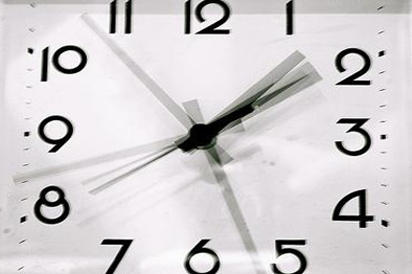Time is so important to us. Years ago, people told the time from the seasons and the tides and the sun.
Today, we rely on calendars and clocks to keep us on track, and we pay attention to our time right down to the second (and in sports, we even pay attention to time right down the millisecond).
We make sure that we get to work on time and get the kids to soccer practice on time. Time is an asset that we all wish we had more of. We envy people with perfect timing. We save time when we can so we can spend time doing things we enjoy.
When it comes to credit scores, time is a valuable commodity. If you want to achieve or maintain a great credit score, use these four time-related tips to help you.
- Pay your bills on time. Payment history, including on-time and late payments, have the most significant influence on your credit score of all the various elements that make up your score. So paying bills on time consistently is the best, most positive actions you can take. Set reminders on your calendar to pay your bills -- don’t just wait for the bill to show up in the mail as your reminder. Make sure you know what is going out and when so that you can have enough money in your bank account at the time to avoid missed payments because of insufficient funds.
- Time your loan applications (part 1). In general, you shouldn’t apply for new credit too frequently. Too many inquiries and new accounts can count against you. So if you are looking to make an important loan application (such as a mortgage) within the next six months, hold off on applying for other credit in the meantime.
- Time your loan applications (part 2). Although you shouldn’t apply for too many credit accounts in too short of a time, credit reporting agencies recognize that sometimes you have to shop around for a “big ticket” loan (like a mortgage or car loan). In those cases, it’s OK to shop around as long as you keep those loan applications within a focused period of time, such as 14 days. Again, timing is important so make sure that you are doing your multiple big-ticket credit applications within a small window of time.
- Bide your time. In spite of our best intentions, bad things do happen sometimes and negative information can appear on our credit reports. Perhaps we simply missed a payment or maybe a bankruptcy was unavoidable. In those situations, the best thing to do is simply “bide your time” and wait, while re-establishing your credit, because time does heal all wounds. Most of those negative items will eventually fall off in 7 to 10 years.
In our modern age, time is important. It’s the one thing that we all get the same amount of (24 hours each day) and it’s how we spend that time that matters. You can use time to your advantage to help boost or maintain credit by doing the right things at the right time and letting time heal the credit items we don’t want on our report.
-- Jeanne Kelly is a nationally recognized authority on credit, the founder of The Kelly Group and the author of The 90-Day Credit Challenge. She has appeared on The Today Show, and blogs for Huffington Post & Poughkeepsie Journal. Visit her online at www.JeanneKelly.net and follow her on Twitter @CreditScoop.












